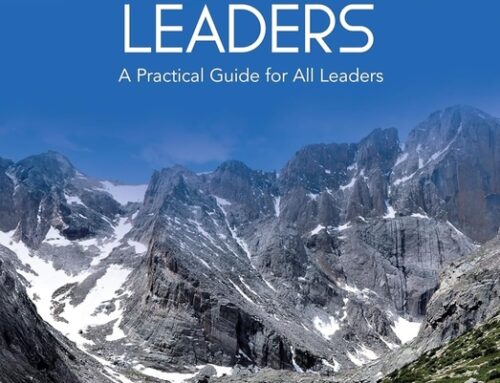
1) Search online for book reviews, indie book reviewers, self-published book reviews, how to get book reviews, etc.
2) Email or contact those reviewers asking them to take a look at their books and comment.
Here’s why that doesn’t work. First of all – those few sites that offer reviews are probably swamped with hundreds, or thousands of book review requests. They may not get to yours. If they do – most of those sites are PR1 or maybe PR2 (I’ve checked) and I’m willing to bet that the majority of people who found those sites were looking for someone to review their book, rather than searching for recommendations of books to buy and read. Does the review do you any good? (Yes…if you convince them to post on amazon. More on that later).
Here’s a better way to get reviews – while avoiding “book review websites”.
1) Find bloggers (or websites, but blogs are easier) who are in some way related to your book, or who may like your book, or who have reviewed other books in a similar genre, with a Page Rank of three or more. You can use “google blogs” to search for them. Be creative! If your book is set in LA, write to bloggers in LA or LA tourism sites. If your main character is a lawyer, contact lawyer blogs. If your character is a witch, write to wicca blogs, etc. Find some basis of connection.
Why PR3? Once a blog hits PR4 they receive a lot of advertising requests, free books, etc. PR3 is low enough that they won’t be totally swamped, and might actually respond favorably. But if they do post, their link to your site will be more valuable (and their review will rank higher).
2) How to ask for the review: Tell them who you are, that you’re looking for creative ways to promote your book, and ask politely if they’d be interested in receiving a free copy. If they like it – no strings attached – you’d appreciate a review or comment on Amazon.
Getting your book reviewed is an important step in getting the word out that you’ve recently published a book. Most writers focus most of their attention on the content and leave the other stuff to their support staff. But now it is easier than ever to do the little things, and completely streamline the process and your abilities. Being able to make book covers and get reviews from many different places and people make this the best time ever for publishing your own work by yourself.
What NOT to do: A few months ago I sent out about 1000 emails – the emails were long, had lengthy descriptions of my book reviews, and several links. I got very few responses – because it seemed a lot like spam. So don’t do that! Make your emails short and punchy. Make them personal. By the way, I like the term “Indie author” more than “self-published.” You can even use it to your advantage. Here’s a sample:
Dear _____, I found your site searching for blogs about _____. I’ve recently written a book about (very short description – your one sentence book plug) and (reason your book is related somehow to this blog). I’m an indie author and am looking for creative ways to promote my book. I noticed you (like, do, support, etc…show them that you’ve looked over their blog and actually know something about them). I think you might enjoy reading it, so I’d like to send you a copy. You can check out the details on this page: (link to your page….with lots of details, description). If you give me your mailing address I can ship one to you. There’s also a PDF review copy here (another link).
There’s no obligation of course, but if you like it I’d appreciate a short review or post on your blog, or an amazon comment.
Sincerely,
(author name)
Don’t make it too formal. Make it casual and personal, like you’re writing to a friend, not a stranger. If you only have kindle and no print file, you can send them to a link that has several ebook options available, including PDF … however, you should have a print copy. I print and ship mine directly from createspace… it’s pretty cheap and very easy. Most people prefer a book and if you actually send them one, they are much more likely to comment or do a writeup. (If you find a site you really want to be on – dig around and try to find their mailing address. Send them a copy first and say “I’ve already sent you a copy, hope you like it!”) In general, you don’t want to ask them to do you any favors. You want to do THEM a favor first, without expecting anything back. Send them a book because they might enjoy it, not so that they can promote you (why should they?)
Getting reviews is a numbers game. Big publishers send out a minimum of about 500 review copies. While most self-pubbed authors can’t afford that, what we can do is send out 10 or 20 book to perfectly chosen niche-blogs, while at the same time directing hundreds of other blogs (by email) towards our online digital copy (yes, you should have copies of your book available for free in different formats on your website, and you should let people know they can read them for free and that you’d appreciate a review).
In the beginning of the game, it isn’t about profit – so don’t worry about it. In the beginning, it’s about getting buzz. You need comments. You need support. After you have that – THEN you can worry about selling. But without it, why should anyone buy from you?
PS) If your book is not professionally edited, if your spelling and grammar stinks, if you have a homemade cover that looks like crap, then your campaign to get reviews won’t work. You are asking people to put their own integrity and reputation on the line – it doesn’t matter if your writing is amazing; they will feel embarrassed if they recommend a poor quality product, and you shouldn’t ask them to.
Derek Murphy is the author of Jesus Potter Harry Christ.
Get an Editorial Review | Get Amazon Sales & Reviews | Get Edited | Get Beta Readers | Enter the SPR Book Awards | Other Marketing Services






















I recently was interviewed myself for a blog and enjoyed it. Your template covers all the bases. Thank you
Hi Derek-
I must admit I’m a bit confused and a tad bit insulted by your article. You state:
So most authors do this:
1) Search online for book reviews, indie book reviewers, self-published book reviews, how to get book reviews, etc.
2) Email or contact those reviewers asking them to take a look at their books and comment.
Here’s why that doesn’t work…
While your advice is to just search for popular blogs related closer to the subject matter or genre of an author’s book, you do state that you yourself sent out 1000 emails requesting reviews. But you do not state who you sent those emails to.
In January of this year, The LL Book Review (an indie and self-published book review site) received one of those emails from you requesting a review. And we accepted your book and requested a review copy which you did provide. So, do you not follow your own advice? Are you posting this as a result of the lack of attention your email blast got? Or does your advice really hold no merit?
While indie review blogs (such as The LL Book Review) may not get a lot of traffic outside of the indie community, the same can be said for personal author blogs or even message forums, and face it, there’s a lot of them out there!
And though getting lots of reviews at places like Amazon.com can certainly get you attention, most readers still judge a book for themselves and don’t even read the reviews.
Outside of personal friends and family members who might read your self-published book, sometimes authors look to the indie community for support and to help get the word out. In my personal opinion, word of mouth is the best marketing tool there is. Reviews, particularly positive ones, are what may give a book merit and create buzz in the virtual world, but it shouldn’t really matter who those reviews come from.
And for what it’s worth, LLBR does cross post its reviews to Amazon.com.
-Shannon Yarbrough
Founder, The LL Book Review
http://www.llbookreview.com
If you’re an indie author looking for a book review, visit http://www.myquietword.blogspot.com Their reviews are posted to amazon,barnes&nobel,weread and books a million.
Thanks Shannon, I’m ashamed and properly mollified. I wasn’t clear enough in my post and I didn’t mean to attack indie reviewers. I had two main points – one is that my email system wasn’t very nice (they should have been more personal and less spammy, but I appreciate you overlooking that). The second is that small indie book reviewers may be overworked and don’t have a high enough page rank; this has nothing to do with their quality – but a review on a low page rank simply won’t be found as easily as the blogs I mentioned. (The LL Book Review has a PR3 which is great – you’re giving a much-needed opportunity to indie authors). About my email blast, I’m glad I sent one to you. But I mostly sent them to standard book review sites, many of whom replied snarkily that they don’t review self-published or indie books. I do appreciate the few that took the time to respond. Since LL Book Review probably started out small I should change my advice to, “as well as sending out books to indie book reviewers, which may not work all the time for the following reasons, you may also want to try finding blogs that aren’t about book reviews that have a readership that might be interested in your book, and contacting them directly.”
Thanks again for your comments.
Thanks Derek for your clarification. As an aside, you do have a positive review to look forward to on our site in a few weeks. And it will be cross posted to both Amazon and GoodReads.
-Shannon
Derek, I’m glad you’ve shared your experiences with us. You seem to have a clear-eyed view of the current scene. Shannon, I like this: “And though getting lots of reviews at places like Amazon.com can certainly get you attention, most readers still judge a book for themselves and don’t even read the reviews.” That sounds okay to me. You get the reviews and some buzz, but the readers are still going to pay more attention to the genre, cover, trailer, and description (on the back cover or wherever else they might find it) than what the reviewers say. That’s a deal I can live with.
Ron-
I say that strictly as a reader myself. I try very hard not to let reviews sway me from reading a book. In fact, most books I read have less than 10 reviews at Amazon, if any.
As an author, I’d like to think that positive reviews help your book gain attention and in the end, gain sales. But I’m not 100% convinced.
And as a reviewer in the indie community, I once thought my service was to the reader and to tell them why they should (or shouldn’t) read a particular book. But as Derek pointed out, the indie community is very self-reliant and most people who frequent indie review sites are indie author themselves, not the blind readers looking for good books.
So, my role as an indie reviewer is to offer praise and/or constructive criticism for the author. My review becomes simply a marketing tool for them to use however they see fit. I try to review with both the reader and the author in mind. And in the end, yes, I cross post the review to Amazon for the author. We all know why we like to see reviews of our books there!
Thanks,
Shannon
I am sorry if I sound stupid but what is PR1 or PR2 and how do I find out who has that ranking. I looked at google blogs and didn’t see any thing like it. I would love to know how popular some blogs are. Can you give more information?
Check out http://prchecker.info/ to see a site’s rank. A higher rank means the site ranks higher for certain terms in Google. So if you type in “books” in Google, Amazon ranks 1st because it’s got a high rank.
http://www.google.com/#sclient=psy&hl=en&site=&source=hp&q=books&aq=f&aqi=&aql=&oq=&pbx=1&bav=on.2,or.r_gc.r_pw.&fp=40fcbd765406589b
A blog with a higher rank will get more traffic, so a review will have a bigger reach – it’ll also help your site rank better if a site with high PR links to it. SPR’s got a 4. It used to be 5, but it dipped down again.
Henry, thanks for the information. How do we get SPR back up to 5? Visit it every day no matter what?
For most browsers, you can add a plugin or addon that shows the PR when you visit a site. The PR is usually only for the main page; PR is about the “authority” of your site and is based on how many quality sites are linking to you. Usually it grows with time and by writing good content. I’ve just donated $10 on fiverr.com to get Self Publishing Review more backlinks. I’m also working on my own blogs’ PR so when it gets up there I’ll link to SPR also. That should help; but it only changes about 3 times a year, when Google goes through and reassesses things.
Wow, cool, thanks for the Fiverr.
Ron, I’m not sure why it dipped, given that links are increasing. But Google’s a mystery, and it’s possible that it’s ranking 4.9, rather than 4.1.
As a book blogger I would like to add that if you are requesting a review please read the review policy on the reviewer’s site. Most good book review blogs should have one. I cannot stress this enough. It will save you time and money. I not only review indie authors but I’m also self-published therefore I understand what it’s like to be an indie author. Be professional and follow the reviewer’s guidelines. I have received so many requests with no links to the book info and asking me to read genres I specifically state that I do not review. Do your research. Read the reviewer’s blog. Your reputation as an author comes through the email you send. Oh and one more thing. Do address the reviewer by his\her name. After all, you want this person to read your work, the book you slaved to write, publish and now market. Respecting those who will help you create a buzz about your book is respecting yourself as an author.
I agree that there are lots of ways to get reviews other than than the tried-and-true methods and I love your idea. I mention another idea in The Frugal Book Promoter (www.budurl.com/FrugalBkPromo) that I call going through the back door. Many large review sites provide a way to get reviews from their stable of reviewers, but as you noted, it is crowded and simply applying often doesn’t work. But if an author reads the site, familiarizes herself with the indivvidule reviewers (their preferences) and then does a little Googling, she may be able to contact those reviewers individually. That allows her to make a point that she read the reviewer’s piece on XX title, maybe even mention her style, and then ask for a review. A little individulalization can go a long way! I did that to land a review in the Library Journal for my novel and it was nearly a year after that journal’s deadline.
Best,
Carolyn Howard-Johnson
I think one thing that reviewers need to remember to do on their websites are to put their review policies up. I have been to quite a few reviewers blogs and it’s either not up there or it is hard to find. One should not have to scroll down to the bottom of the website page (which I saw on one reviewers site) to find the review policy. It should be under reviews and the first button under that page. Knowing who the reviewer is, is nice but knowing the policy is even better.
Thank you so much for your info on this page.